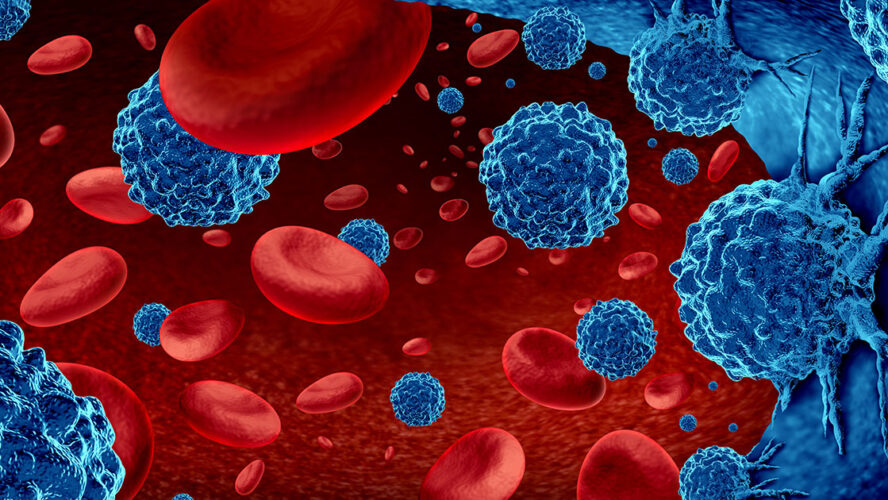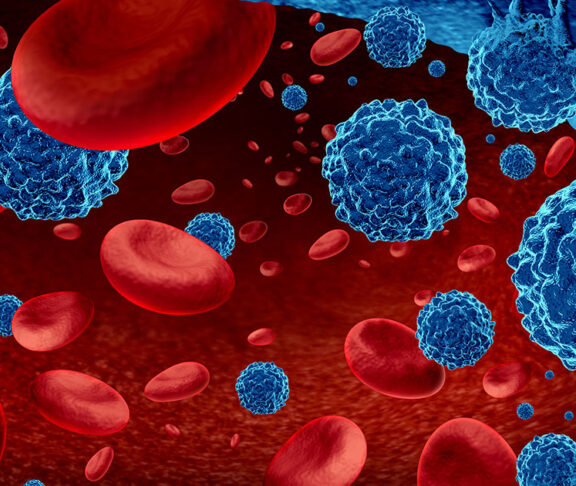September is dedicated to awareness for blood cancers, life-threatening disorders that impact thousands of Americans and their families.

Belinda Avalos, M.D.
President, American Society of Hematology (ASH)
Each year, more than 180,000 people are diagnosed with blood cancers, such as leukemia, lymphoma, or multiple myeloma. Blood cancers account for 9.4% of all new cancer cases diagnosed in the United States.
The American Society of Hematology (ASH) is made up of over 18,000 hematologists, or doctors who treat blood cancers and other blood disorders. Some of us are clinicians, caring directly for patients, while others are researchers, working to develop the next breakthrough therapy. Some focus on cancers and some on non-cancerous conditions, but all of us are united by a common mission: conquering blood disorders to improve the lives of individuals around the world.
September is Blood Cancer Awareness Month
September is a significant month for ASH, as it is dedicated to raising awareness for blood cancers, which originate in the bone marrow — a spongy material inside the bones that produces blood cells — or the lymphatic system, a part of the body’s immune system. These cancers begin when the body overproduces abnormal blood cells, usually the white blood cells that fight off infection. This overproduction can lead to a diagnosis of a form of leukemia, lymphoma, multiple myeloma, myelodysplastic syndrome, or myeloproliferative neoplasm.
Unfortunately, blood cancers are more common than many people realize. In 2024, nearly 1.7 million people in the United States were living with or in remission from a blood cancer. Among children, leukemia is the most common cancer, affecting about 4,000 children each year in the United States and accounting for 1 in 3 pediatric cancer diagnoses.
While a person’s genetics, age, and ethnicity play a large role in determining whether they’ll develop a blood cancer, new research shows that environmental factors play a significant role in triggering these cancers. People who smoke, have previously received cancer treatments, or have been exposed to toxic chemicals in an industry like agriculture, manufacturing, or emergency response are more likely to develop a blood cancer.
Common blood cancer symptoms include chest pain, recurring and unexplained fever, persistent weakness and fatigue, enlarged lymph nodes, and frequent bruising or bleeding. The earlier the diagnosis, the better, so if you suspect that something is awry, talk to your doctor.
Research saves lives
While some blood cancers require more involved treatment than others, common therapies include chemotherapy, radiation, immunotherapy, or bone marrow transplant. Many of these advances have been made possible through support from the National Institutes of Health (NIH), the world’s largest public funder of biomedical research and a key driver of discoveries that have transformed care and saved lives.
The progress we’ve made in treating blood cancers is significant, but it depends on sustained, robust funding for the NIH. ASH is committed to advancing progress and championing the importance of the NIH to ensure patients with blood disorders around the world continue to see improved outcomes. You can make your voice heard and advocate for continued investment and progress in lifesaving research by joining ASH’s #Fight4Hematology. Learn more at www.hematology.org/advocacy/fight4hematology.

